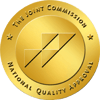We know celebrities who entertain us, whose lives seem beautiful and glamorous, and suddenly- they are gone. The shocking news of suicide or overdose is publicized, and hearts are broken.
We know of these celebrities because their lives are public. Less public is the depression, anxiety, trauma, and addiction that leads to the struggles and tragic losses of celebrities, and of our very own community members.
Addiction is a disease, not a character flaw (CDC).
Addiction often co-occurs with depression, anxiety, and trauma when there is a pain and numbing cycle that is cultivated. When the cycle is not stopped, it can result in a person “losing” their sense of self. This can include damaged relationships and career, with a central focus of sustaining the addiction. This may end in a low quality of life mentally and emotionally, or rock bottom such as jail or death. “Addiction” may bring drugs or alcohol to mind, though any dopamine-surging activity can become an addiction.
“Finding” one's sense of self again, or creating a new happier, healthier sense of oneself, is possible.
"I used to walk out of the shower backwards so I wouldn't have to look at myself in the mirror, and when I brushed my teeth I would stare at the sink. Today, after 30 days here, I looked at myself in the mirror and liked what I saw for the first time in years." -G.R., Alumni
There are many articles addressing the symptoms of depression. But, where does this cycle start? Where does depression come from? Dr. Gabor Matè works as a physician, author, and speaker specializing in addiction, stress, and childhood development. He says, “Depression is largely about the suppression of negative emotions.” Gabor has written and spoken extensively about the science behind emotional stress being a major cause of physical illness.
Steve Inganamort, Music Therapist, expands, “When we depress, or push our feelings down, we push everything else down. Our immune systems, sense of joy, fulfillment, the feeling of love for others.”
If you struggle with depression and addiction, you are not alone, treatment is available, and healing is possible. Strategies may include:
Residential Treatment
Often with strenuous challenges such as addiction and depression, coping mechanisms and habits are put in place which seemingly sustain wellbeing, but ultimately lead to deeper struggles, and are impossible to untangle alone.
A professional, talented, compassionate staff who is professionally trained in helping individuals heal from addiction, depression, anxiety, trauma, and other co-occurring issues, in a comfortable and private setting is available at Soberman’s Estate.
There is also an alumni community of successful individuals in recovery who have struggled like you, and have healed, are happy, and enjoy supporting others in the healing process.
Meditation
Meditation is not simply sitting still in a quiet space. There are many types of meditation, even walking or washing dishes, or using mala beads can be turned into meditation! It is about cultivating awareness, mindfulness, and presence. This practice has been proven to help individuals become more aware of their emotions and how to be with them, embrace them, appreciate them, and benefit from them, as opposed to ignoring or rejecting them.
Counseling
Every human has struggles, life is not perfect. Therapy is a strategy individuals can use to gain a new perspective on their life, and learn tools which they can use to make decisions and situations better for themselves. Therapy can also be used as an approach to heal mental and emotional burdens, that may have manifested as damaged self-esteem, struggling relationships, unhappiness, anxiety, mental and/or physical illness, or other issues. A good therapist may guide you to the awareness and tools you need to live the life you desire and deserve.
Self Esteem Building
Dr. Abraham Twerski, psychiatrist and author specializing in substance abuse, defined self-esteem as “a true and accurate awareness of one's skills, capabilities and limitations. The importance of this should be obvious. A person can adjust optimally to reality only to the degree that one's perception of reality is correct. An incorrect perception of reality is a delusion, and someone who is delusional cannot possibly adjust properly to reality.”
Tchiki Davis, MA, PhD says, “Self-worth appears to be the best predictor of happiness – even more so than 19 other happiness skills including gratitude and strong personal relationships. Why is self-worth so essential to happiness? Because our views about ourselves not only affect how we feel; they also affect our thoughts and behaviors. When we feel bad about ourselves, we unconsciously act in ways that end up confirming our beliefs. For example, if we feel like we are not good enough for a good relationship, a good job, or financial stability, we stop pursuing these goals with the intensity required to reach them, or we sabotage ourselves along the way.”
There are many strategies to improve self-esteem, such as cultivating self-awareness, and traits you might like to embody, such as joy, honesty, integrity, generosity, patience, etc. There are also boundary drawing practices, self-love meditations, volunteering opportunities, different types of therapy, and more. A professional counselor may help you find the best practices for yourself.





